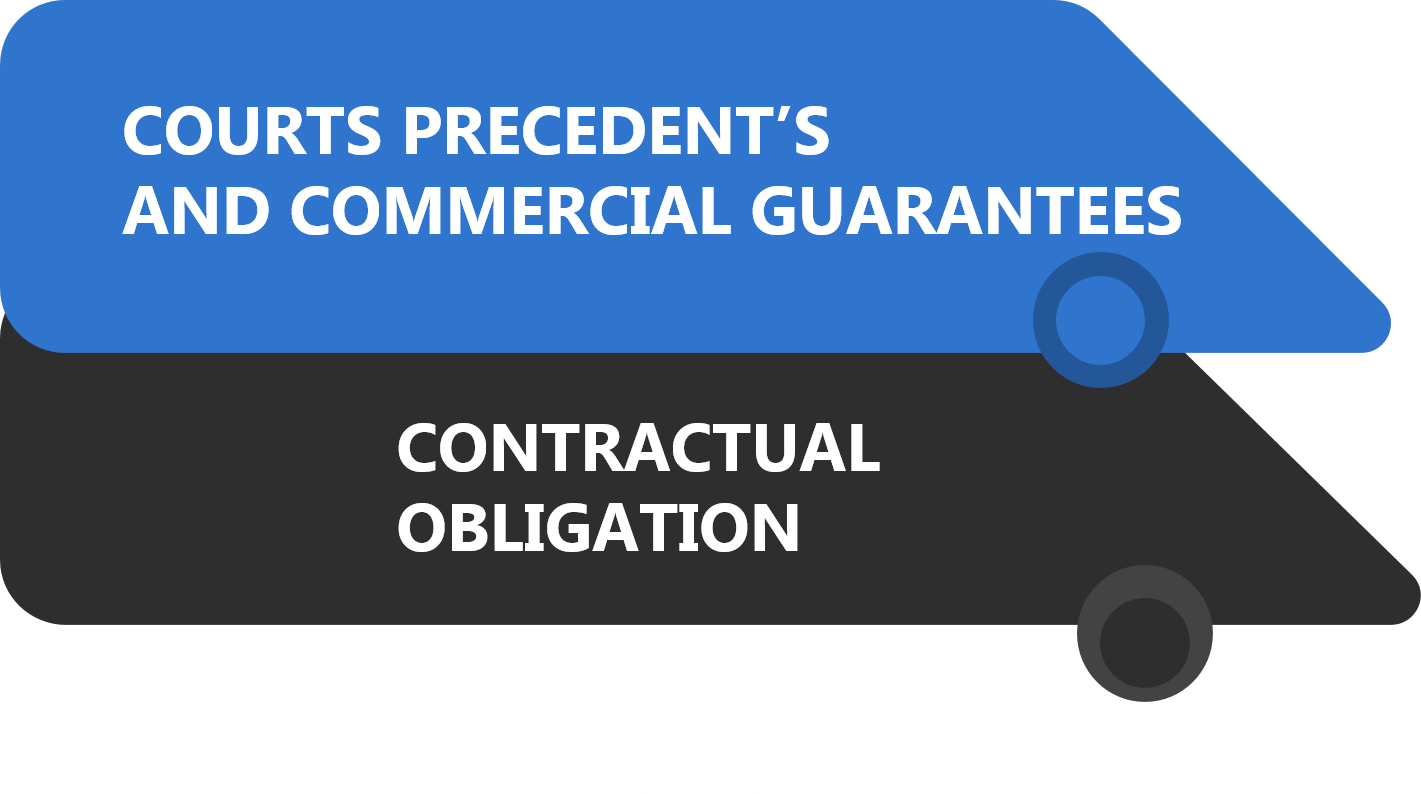The risk management activities inherent in running a corporate or investment banking business in the UAE remain critical.Because of the strong local characteristic of "name lending," which entails lending or providing other banking facilities to family or other private businesses primarily on the strength of the proprietors' "name" or "names" standing behind the business.
Of course, there is commercial overlap between the proprietors and the businesses they own, but credit analyses will fall apart when bad banking processes and procedures lead to sloppy legal documentation and inconsistencies in guarantee and security support documents.
Many business entities and institutions may acquire funds or resources by entering into a corporate guarantee agreement. Corporate guarantees have far-reaching consequences, and their implementation necessitates a painstaking review of each case's truth.
What is the concept of a Corporate guarantee?
A "guarantee" or "corporate guaranty" is another name for a corporate guarantee. Both the debtor and the lender benefit from this guarantee. The loan is safer for the lender since the guarantor guarantees that the money will be repaid. Because of the guarantor's guarantee, a debtor will be able to obtain a loan that they may not have been able to obtain otherwise. To qualify for loans, debtors with low credit scores will require corporate guarantees.
A corporate guarantee is also known by the following terms:
- Third-party guarantee
- Guaranty
- Guarantee
- Guaranteed loan
Who are the parties to the Corporate Guarantee?
The parties to a corporate guarantee are the companies or persons that are responsible for carrying out the agreement's obligations. The responsibility for most guarantees is to repay funds that have been loaned to the debtor.
In a traditional corporate assurance, there are three major parties:

Guarantor
The guarantor is a person who agrees to fulfil a legal obligation by taking over the debtor's loan payments if the debtor is unable to do so.
Lender
The person to whom the debt is owed, the lender.
Debtor
The debtor is the person who receives the funds and is responsible for repaying the loan.
What Is a Limited Guarantee, and How Does It Work?
A limited guarantee is used to restrict the guarantor's liability in such cases. For example, the guarantor will only be required to repay a portion of the debtor's loan rather than the entire amount. The sum of the restricted guarantee must be stated explicitly in the guarantee document in these circumstances.
In a mortgage agreement, you may see a small guarantee. Instead of using the whole value of the property as a security measure, the guarantor will just have to pay back a portion of the loan. The limitations must be specified in the loan agreement and signed by the guarantor in order for this agreement to be legally enforceable.
What information does a Corporate guarantee need to contain?
Both corporate and personal assurances should provide the following details:
- The debtor's name.
- The creditor's or lender's name and address.
- The guarantor's name and contact details.
- Any guarantee limitations, such as the guarantor's maximum payment amount or percentage of the loan.
- A signature by a third party who is not a party to the agreement.
Is a Corporate Guarantee Enforceable?
Corporate guarantees are essential in business operations, especially when obtaining or creating credit. Banks and other lenders receive the majority of guarantees. One of the types of consensual protection for loan collateral is a bank. You may be wondering if promises are enforceable or if they are a viable means of protection.
A contract between a corporate body or a person and a debtor is known as a corporate guarantee. The guarantor offers to assume responsibility for the debtor's commitments, such as repaying a mortgage, in this arrangement.When a company promises repayment of a loan given to one of its subsidiaries, the individual who signed the agreement guarantees that the loan will be repaid if the subsidiary defaults on the loan.
Since companies have several levels of individuals, including the board of directors, staff, and shareholders, corporate promises are more difficult to implement. Because each of these individuals plays a different role in the administration and management of the company's affairs, the person signing on behalf of the company does not have the authority to do so.
Overview on Laws Governing Corporate Guarantee

Due Diligence on the Assets of the Guarantor
Prior to the execution of a guarantee, all lenders must conduct the requisite due diligence on the essence of the guarantor's properties. In terms of regulation, it is important to remember that the definition of "self-help solutions" is not recognised by UAE law. As a result, in the UAE, assurances must be upheld by a mechanism overseen by UAE courts. In order to recover the monies due under the guarantee, the lender would need an attachment order, either before starting formal legal proceedings or after obtaining a final judgement.
To speed up the attachment process, lenders should perform the requisite due diligence and obtain all information about the guarantors' unencumbered assets, such as funds in bank accounts, real estate properties, immoveable properties, cars, shares/stocks, and so on. The benefit of recognising the assets is that it will help the court issue an attachment order more quickly, which will prohibit the selling of the assets until the final judgement (noting public searches are difficult in the UAE).
Guarantees are Enforced
Lenders must be mindful of the overall compliance procedure for assurances, as well as the time it takes to obtain a final judgement. A lender seeking to enforce a guarantee must first notify the guarantor of the primary obligor's default by serving a legal notice in compliance with the guarantee's terms and conditions. A lender has the option of filing for attachment first and then initiating substantive legal proceedings, or initiating substantive legal proceedings right away.
Conclusion
Although there are a number of factors that lenders should weigh before depending on a guarantee as a means of protection, guarantees should not be completely dismissed. To avoid unwelcome surprises, a cautious lender can check with Dhanguard about the feasibility and suitability of Corporate Guarantee.
DhanGuard: All-in-One Solution for Business Setup in Dubai, UAE
DhanGuard is your ultimate one-stop solution for all your business needs. Whether you’re planning to set up a new company or expand your existing business in the UAE, we’ve got you covered with our comprehensive range of services. From Business Setup in UAE and Company Formation in Dubai to managing your financial and legal compliance, we provide everything you need under one roof.
Our services include:
- Company Formation in UAE and Dubai
- Opening a Business Bank Account in UAE and Dubai with a 99% success rate
- VAT & Corporate Tax Compliance
- Accounting, Bookkeeping, and Auditing Services
- Trade License Renewal
- Golden Visa Assistance
Let DhanGuard make your journey of Business Setup in Dubai seamless and hassle-free!















